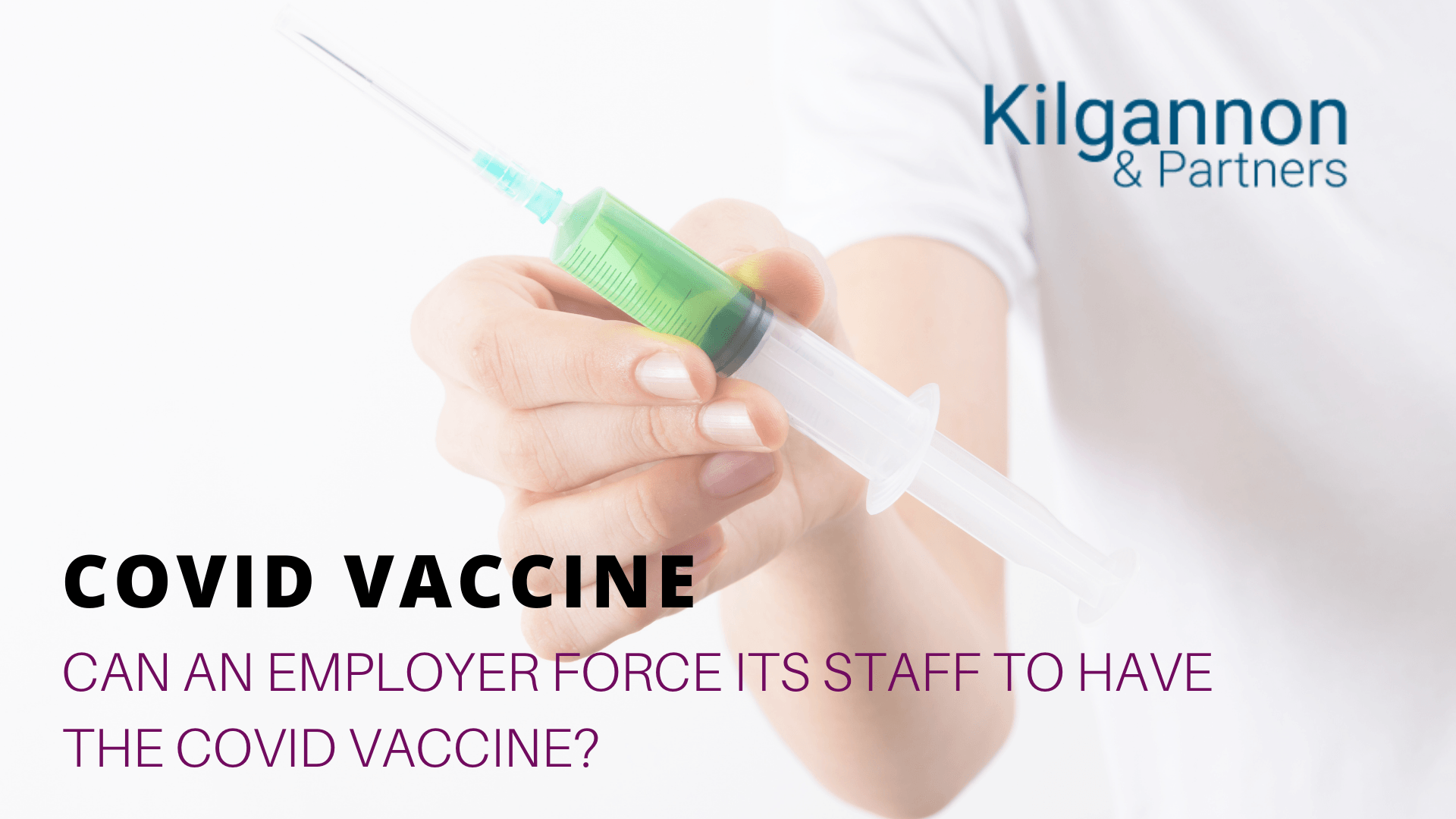COVID VACCINE
Can an Employer force its Staff to have the COVID vaccine?

This is an interesting question that is being asked more and more as the vaccine gradually rolls out.
Currently, it is being given to those over 80 and, in some areas, over 70s. As it becomes available to those more likely to be in employment (it is expected to be offered to all adults by the autumn), we explore the factors for employees and employers to consider.
ACAS Guidance
The ACAS guidance provides that employers should support staff who want to have the vaccine but cannot force them to have it. It does, however, state that there may be some situations where the vaccine may need to be mandatory, for example, where they are required to travel overseas for work. Some reasons why we consider it may be difficult to impose a mandatory vaccine are set out below.
Right to Private Life
One of the fundamental principles of the Human Rights Act 1998 is the right to a private life. As such, an employee could argue that it is none of their employer’s business whether they choose to accept the vaccine when it is offered to them. While that may be the case, employers need to balance the right to private life with the need to protect other employees’ and customers’ health and safety.
Discrimination
We believe that there are possible discrimination angles in mandatory vaccines. The protected characteristics that might be impacted by the vaccine are:
- Disability
Those with compromised immune systems may not be able to have the vaccine and so it would likely be discrimination to impose a recruitment policy or impose disciplinary sanctions for those that have not had the vaccine.
- Age
Because there is likely to be at least a six-month gap between older groups having the vaccine and younger adults, it could be age discrimination to only offer work to those that are vaccinated.
- Religion or belief
Many vaccines use gelatin derived from pigs and there are indications that the COVID vaccine may do the same. There are likely to be a number of people refusing on religious grounds of because they are vegan or vegetarian.
- Sex
There are some rumours that the vaccine may affect fertility (or at least it has not yet been proven that it does not) and, until there is further evidence, some women may refuse on this basis if they have not had children or if they are trying to get pregnant. Usually, unless a pregnant woman is considered clinically extremely vulnerable, she will not be routinely offered the vaccine.
Health and Safety at Work
Employers have a duty to ALL staff to provide a safe system of work. The difficulty will be where some staff have refused the vaccine and other staff are concerned about their own safety in attending work.
GDPR
If employers keep records of who has and who has not had the vaccine, this is likely to be classed as special category data given that it relates to health records and so employers will need to review privacy notices as there are particular considerations and the rules are more restrictive regarding special category data.
Whether you can force your employees to have the vaccine will be dependent on many factors; some moral, some legal. As we move into the Spring and the age range of those vaccinated reduces, we suspect this topic may get more focus.
If you would like any further information or want to discuss any of these issues then please
contact the writer, Emily Kidd, via ek@kilgannonlaw.co.uk or on 01483 388 900.
Kilgannon & Partners LLP is a specialist employment law firm where our experienced employment law partners offer practical, prompt and professional employment law and HR advice.
4th February 2021. © Kilgannon & Partners LLP











